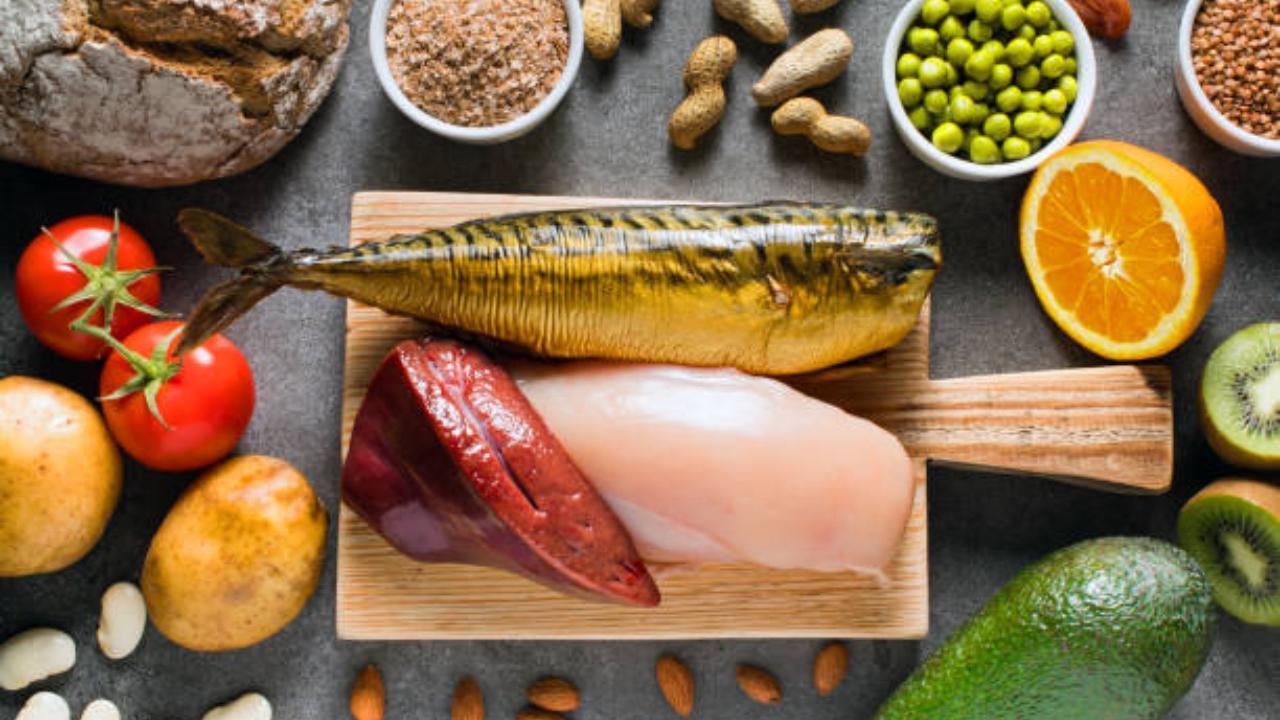Niacin helps boost brain function, repairs damaged brain cells and reduces the symptoms of schizophrenia and Alzheimer’s Disease. Health expert shares top 5 niacin-rich food sources

Image for representational purposes only. Photo Courtesy: iStock
Niacin is an essential vitamin for the body to produce energy from the food. Also called vitamin B3, niacin offers a multitude of benefits to the whole body, from the skin to the brain. There are two chemical forms of niacin- nicotinic acid and nicotinamide (or niacinamide). It is a water-soluble vitamin; which means the body does not store it and excretes the excess of it through urine. The human body gains niacin from food, but small amounts of it are also produced from an amino acid called tryptophan.
Dr Chetan Savaliya, Director of Satvam Nutrition shares how vitamin B3 works, the health benefits of niacin, and the niacin-rich food sources to consume it.
How Niacin works
Niacin produced from the amino acid tryptophan is made by the liver. It works in two enzyme systems- NAD and NADP. These enzyme systems aid cellular metabolism and help with the movement of hydrogen within cells. This process thus aids biosynthesis or the formation of new compounds. The coenzymes work closely with the energy molecule and affect all the tissues of the body. Moreover, niacin plays a crucial role in making and repairing DNA, cell signaling and acting as a powerful antioxidant.
How much Niacin does one need?
Mentioned below is the list of Recommended Daily Allowance (RDA) of niacin for individuals in different age groups.
|
Age Group |
RDA of Niacin |
|
Birth to 6 months |
2 mg |
|
7 months to 3 years |
4 to 6 mg |
|
4 to 13 years |
8 to 12 mg |
|
14 to 18 years |
14 to 16 mg |
|
19+ years |
16 mg (men) 14 mg (women) |
|
Pregnant women |
18 mg |
|
Breastfeeding women |
17 mg |
Health benefits of Niacin
Consuming adequate amounts of niacin on a daily basis can help maintain optimal bodily functions and keep the organs healthy. Here are the health benefits of niacin:
1. It helps boost brain function, repairs damaged brain cells and reduces the symptoms of schizophrenia and Alzheimer’s Disease.
2. It improves blood fat levels and boosts heart health. It increases HDL (good cholesterol) levels, reduces LDL (bad cholesterol) and triglyceride levels. It is prescribed with statin to help lower cholesterol.
3. It also improves skin health by offering sun protection, damage repair and also prevents certain types of skin cancers.
4. It improves blood flow in the body and helps reduce blood pressure. Research highlights that 1 mg increase in daily intake of niacin reduces the risk of high blood pressure by 2 percent.
Why include Niacin in your diet?
Niacin deficiency leads to several symptoms and conditions like constipation or diarrhea, vomiting, fatigue, loss of appetite, headache, memory loss, depression and skin irritation or discoloration. Psychiatric symptoms and brain fog are also associated with the deficiency of niacin. Severe niacin deficiency also leads to pellagra, a condition that causes skin rashes, diarrhea, and redness of the tongue.
People who are at risk of niacin deficiency include individuals with limited diets/undernutrition, inadequate riboflavin, pyridoxine, and/or iron intakes, chronic alcoholism and carcinoid syndrome. Thus, it becomes essential to consume niacin-rich food sources.
Top 5 niacin-rich food sources
Meat Sources: Chicken, Fish (Tuna, Salmon), Beef, Turkey, Pork
Grains: Brown Rice, Fortified Cereals, White Rice, Lentils
Nuts and Seeds: Peanuts, Sunflower Seeds, Pumpkin seeds, Cashews
Fruits: Avocados, Bananas, Cherry Tomatoes, Apples, Peaches, Passion Fruit, Mangoes
Vegetables: Green Peas, Potatoes, Broccoli, Spinach, Kale, Asparagus
Niacin for essential bodily functions
Vitamin B3 or niacin is a highly significant and essential nutrient for the body to generate energy and function effectively. Being one of the B-complex vitamins, niacin helps with cellular metabolism and signaling, and DNA repair in the body. It offers multiple health benefits and can be gained from food sources like meats, whole grains, nuts and seeds, and certain fruits and vegetables. A healthy and nutritious diet is the key to maintaining adequate niacin levels in the body.
 Subscribe today by clicking the link and stay updated with the latest news!" Click here!
Subscribe today by clicking the link and stay updated with the latest news!" Click here!








